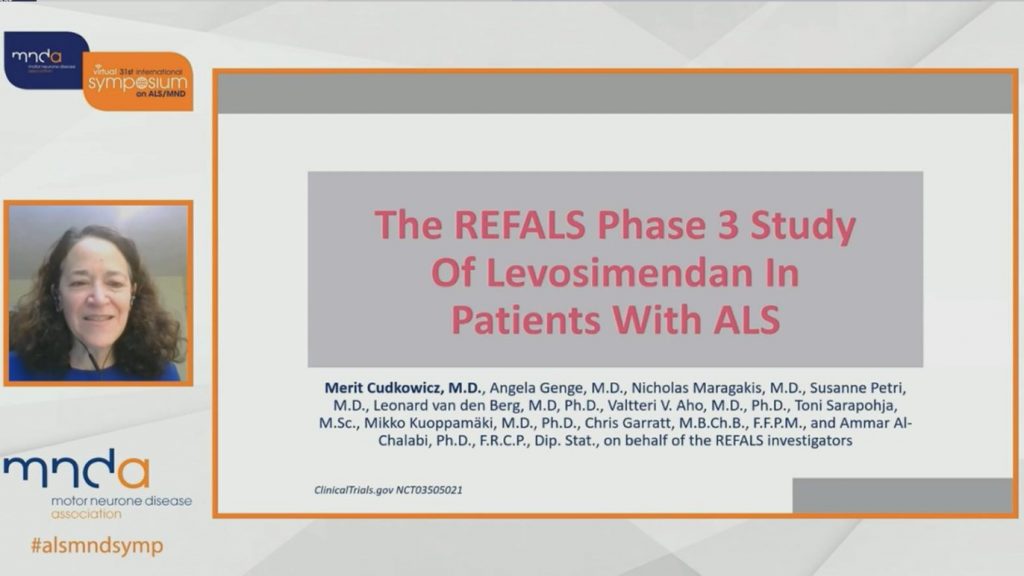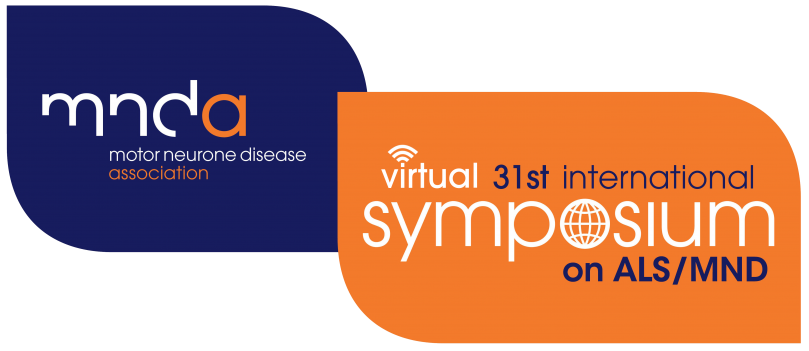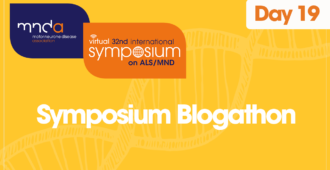This blog is part of the ‘Virtual Highlights’ collection of articles, where you can read about the content of some of the talks and posters presented at the Virtual 31st International Symposium on ALS/MND. This presentation was part of Session 3: Clinical Trials.

Presented by Dr Merit Cudkowicz, from Harvard Medical School and Massachusetts General Hospital, this presentation discussed the results of the Phase 3 clinical trial of levosimendan – known as the REFALS trial.
What is levosimendan?
Levosimendan, delivered intravenously, has been used for the short-term treatment of severe chronic heart failure since 2000 and is now being studied in an oral form as a treatment for ALS. Pre-clinical tests, and tests in healthy volunteers, showed some promise. A previous Phase 2 randomised trial also showed a significant response to treatment on supine slow vital capacity (SVC) – that is, SVC measured when the person is laying down – after 14 days of treatment compared to placebo, although no improvement in sitting SVC was noted.
The REFALS trial
On the strength of these results, a Phase 3 clinical trial – REFALS – followed and this was carried out over 48 weeks, with participants being given the opportunity to continue to an open-label extension study (where all participants from both the treatment and placebo arms are offered the trial drug) – REFALS-ES. This presentation covered the results of the REFALS study only.
The primary endpoint was change in baseline supine SVC after 12 weeks of treatment with secondary endpoints of an increase in Combined Assessments for Function and Survival (CAFS) score. 496 participants were enrolled at 94 sites globally and measures to ensure safe continuation were implemented in March 2020 in response to the COVID-19 pandemic.
What was the outcome of the trial?
Primary endpoint
Unfortunately, the primary endpoint was not met, as the difference in supine SVC was not significantly different between the treatment and placebo groups at 12 weeks. There were no significant differences seen between the groups at any other timepoints.
Secondary endpoint
No significant difference was seen in either the CAFS score or ALSFRS-R score between the treatment and placebo groups at any of the timepoints.
Sub-group analysis
Significant treatment effect and/or difference at week 48 in ALSFRS-R scores was seen in participants with shorter disease duration, with lower sitting SVC at baseline and with faster pre-study ALS progression after sub-group analysis.
Going forward
Treatment with oral levosimendan did not significantly improve the respiratory function and overall functionality in a broad population of people with ALS, although a trend to slower progression in ALSFRS-R score was seen in sub-groups of participants and this needs to be further evaluated.
The results of the open-label extension study should be available sometime in 2021, although no firm date was given, and this may help us to further understand how levosimendan could be useful to people in the sub-groups mentioned above.
We look forward to receiving these results and will update the MND community as soon as we can.






